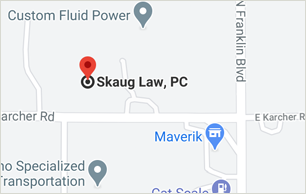Understanding When Will Workers Comp Offer a Settlement: Insider Insights
Last updated Monday, July 15th, 2024

When will workers comp offer a settlement? The timeline varies, but you’re likely to receive one after reaching Maximum Medical Improvement (MMI) when further recovery is not expected. Settlement offers at this stage reflect a clear understanding of your condition and its long-term effects. Our guide will help you pinpoint the essential factors and stages throughout your claim that influence when and why these offers are made, so you can navigate the process with confidence.
Key Takeaways
- A workers comp settlement offer is commonly made after reaching Maximum Medical Improvement (MMI), which can be influenced by various factors such as injury severity, medical cost calculations, and wage loss assessments.
- Understanding the timing and constructing a comprehensive claim, which considers current and future medical expenses, lost wages, and disability payments, is crucial for a fair settlement.
- Partnering with a workers compensation attorney could aid in effectively navigating the complexities of the settlement process, negotiating terms, and dealing with insurance companies and potential court hearings.
Have You Been Injured at Work?
Get Your Free Injury Case Review
Hire an experienced workers’ compensation attorney that knows what needs to be done. The minute you sign with Skaug Law – we start working.
Understanding the Timing of Workers Comp Settlement Offers
The timeline of a workers’ comp settlement is like the rhythm of a song; it has a specific tempo that doesn’t just randomly speed up or slow down. One of the most significant beats in this rhythm is the point of Maximum Medical Improvement (MMI). This is when doctors agree that no further medical care will improve your condition, and it has stabilized. But why is this moment so crucial? Well, it’s typically around this time that a settlement offer is made.
However, like any good piece of music, it’s not just about one beat. The settlement process as a whole usually takes at least six months, sometimes more, depending on the case. It’s important to note that while the settlements often pay out after MMI, they can be offered at any stage of the case.
The dance with the settlement process might be intricate, but understanding the rhythm makes it easier to sway in sync with it.
The Anatomy of a Workers Compensation Settlement
Imagine a workers’ compensation settlement as a jigsaw puzzle. Each piece represents an element of the settlement, including a workers compensation claim and its associated workers compensation benefits, such as:
- Medical costs
- Lost wages
- Potential future lost earnings
- Disability payments
- Cost of retraining
They all need to fit together to create a complete picture. One missing or misplaced piece can affect the whole image.
For example, accurately calculating medical expenses is a critical piece of the puzzle. This includes not only current costs but also future medical care, especially if the injury requires long-term treatment. Another key piece is the form of settlement. Some opt for a lump-sum payment, which reflects future losses and brings closure to the case. Others might consider a structured settlement, providing ongoing payments over a period. The key is to ensure that all pieces fit together to form a complete, fair settlement.
Key Moments in Your Workers Comp Claim Journey
Embarking on a workers’ comp claim journey is like stepping into an adventure. There are several significant milestones along the way, each requiring careful navigation. From reporting the injury, undergoing medical evaluations, receiving ongoing treatment, to finally entering the settlement phase, every step can significantly impact the outcome of your claim.
After Reporting Your Workplace Injury
The journey begins when you report your workplace injury. It’s a crucial first step, similar to igniting the engine before embarking on a long drive. You must notify your employer or supervisor about the injury, providing details such as when, where, and how it occurred. This step initiates the process of claiming your rightful compensation.
However, the journey doesn’t end there. After reporting the injury, it’s important to seek medical treatment immediately, even for seemingly minor injuries. Just as you would maintain a travel log during a trip, maintaining meticulous records of all medical care received is crucial. This detailed record serves as a roadmap, guiding you through the complexities of the claim process.
Navigating Medical Treatment and Evaluations

Preparation for this checkpoint is vital. Just as you would prepare for a long drive by checking your car and ensuring you have everything you need, it’s important to be ready for an IME. This includes:
- Collecting medical records
- Collecting unpaid medical bills
- Gathering evidence supporting your claim
- Following state rules on evidence submission and discovery processes
This preparation will help you steer through the checkpoint smoothly and move closer to your destination – a fair settlement.
The Milestone of Maximum Medical Improvement
As you move further into your journey, you reach a critical milestone – Maximum Medical Improvement (MMI). MMI is like reaching the peak of a mountain; it indicates that you’ve come a long way in your recovery journey, and now your condition is stable. But reaching MMI doesn’t mean the journey is over. In fact, this milestone is essential for estimating future medical expenses, as it indicates the potential end of medical treatment and the start of maintenance care.
Reaching Maximum Medical Improvement (MMI) provides several benefits, including:
- A clear picture of any permanent impairment and long-term care needs that can significantly affect settlement negotiations
- The ability to make better decisions about your claim, as reaching MMI is like reaching a fork in the road where you can see different paths clearly
- The opportunity to understand the financial impact of permanent disabilities and associated future medical costs that MMI could reveal, which may lead to early settlement offers from insurers
Understanding the significance of reaching MMI is crucial for navigating the journey towards a fair settlement.
Deciphering the Types of Workers Comp Settlements
In the world of workers’ comp settlements, there are different paths you can take. Much like choosing between a scenic coastal road or a quick highway route for a road trip, each settlement type has its pros and cons, and the choice depends on your unique circumstances.
For instance, a lump-sum payment is a single payment that covers all claimed medical costs and benefits. It’s like reaching your destination in one straight drive. On the other hand, a stipulation and award settlement creates a continued relationship where the insurer agrees to cover ongoing medical bills and disability benefits for impairment. This is akin to taking a leisurely road trip with frequent stops to enjoy the journey.
Another option is a structured settlement, where payments are divided and scheduled over a period of time. This can be compared to a road trip where you take breaks at regular intervals, ensuring a steady journey.
The choice of settlement type is crucial and can significantly influence the outcome of your workers’ comp case.
Factors That Influence Settlement Timing and Amounts
The settlement process is like a giant balancing scale, with various factors tipping the scale in different directions. These factors include the severity of the injury, the duration needed for recovery, and the need for legal representation, among others.
Severity of the Injury and Its Impact
The severity of the injury is one of the most significant weights on this scale. Just like how a heavier load requires more effort to lift, a more severe injury generally leads to larger settlement amounts. But it’s not just about the immediate impact of the injury. If an injured worker remains significantly impaired after reaching MMI, the inability to return to work can lead to complex settlement negotiations or the need for legal consultation.
Ensuring a settlement aligns with the long-term impact of an injury often involves settling after a disability rating is determined. This rating can more accurately reflect the severity and long-term effects of the injury. But what about minor injuries? In such cases, they are sometimes managed directly by the employer and may not necessitate reporting to the Board or insurance carrier.
Understanding the severity of the injury and its impact is crucial in navigating the settlement process.
Calculating Current and Future Medical Bills
Another weight on the settlement scale is the calculation of current and future medical bills. Picture this as your fuel cost for a road trip; it’s an essential consideration to ensure you reach your destination. If you’re still receiving medical treatment, the settlement negotiation might take longer as your lawyer will want to ensure future medical costs are accounted for, especially before a doctor has determined the maximum medical improvement.
Injuries causing significant financial burden, such as paralysis or traumatic brain injuries, often necessitate extensive future medical treatments and care, impacting settlement amounts. In some jurisdictions, workers’ comp settlements may include a lump sum payment for past medical bills, ongoing treatment costs, and other expenses, which are influenced by the severity of the injury and the need for continued medical care. Adequate calculation of these costs is crucial in securing a fair settlement.
Assessing Lost Wages and Future Wage Loss
Just as you would account for potential roadblocks or detours on a journey, assessing lost wages and future wage loss is another crucial factor influencing a settlement. A worker’s disability rating, which includes a list of possible work restrictions and capabilities, directly affects their capacity to earn regular wages.
Settlement amounts can vary significantly with the type of disability involved; cases with permanent disabilities typically result in higher compensation for lost wages than those with temporary disabilities. Additionally, lost earning capacity is an important consideration in settlements when injuries prevent individuals from returning to their pre-injury work, affecting not only their current but also future wages and treatment requirements.
In some jurisdictions, claimants must substantiate their reduced earning capacity through vocational expert reports, which can critically influence the size and terms of the settlement. Therefore, assessing lost wages and future wage loss is like mapping out potential roadblocks on your journey towards a fair settlement.
Legal Representation: Partnering with a Workers Compensation Attorney

However, just as every road trip has its challenges, engaging a workers compensation lawyer may lead to perceived loss of control over one’s case, a potentially slower immediate release of benefits, and a possibly confrontational atmosphere with the employer. But the advantages often outweigh these concerns. An experienced attorney can:
- Navigate the complexities of the workers’ compensation system
- Provide crucial guidance on legal remedies
- Counter insurance company strategies to potentially increase the likelihood of a favorable settlement.
When to Consider Settling Your Workers Comp Case
Deciding when to settle your workers’ comp case can feel like choosing the perfect time to embark on a road trip. You don’t want to start too early and miss out on crucial sights, nor do you want to start too late and risk driving in the dark. Similarly, when insurance companies comp offer a settlement, they may present initial settlement offers quickly to persuade injured workers to accept a low amount before they fully understand the value of their claim.
In contrast, it’s essential to negotiate a settlement that covers not only current but also future medical expenses, particularly when considering a compromise and release settlement that precludes future claims related to the injury. Remember, once you settle, you will be responsible for all future treatment costs and managing lost wages. Therefore, understanding the right timing for settling your workers’ comp case is crucial for a smooth and successful journey.
Preparing for a Potential Court Hearing
Just like preparing for a challenging part of your journey, getting ready for a potential court hearing is a crucial step in your workers’ comp claim. This involves organizing claim details, adhering to state evidentiary rules, and ensuring all witnesses are fully prepared.
During the hearing, a judge evaluates the evidence and reviews the agreement for understanding and adequacy before making a ruling. It’s like getting your travel plans approved by a road trip expert to ensure you’re on the right track. Furthermore, leveraging the potential costs of a trial and future treatments can enhance your position in settlement negotiations with the insurance company.
Therefore, preparing for a potential court hearing is like packing your bags and checking your car before setting off on your road trip.
The Role of Insurance Companies in Settlement Negotiations
Like unpredictable weather on a road trip, insurance companies can play a significant role in settlement negotiations. They might delay sending offers or answering inquiries strategically to pressure claimants into accepting smaller settlements more rapidly. It’s like a sudden downpour forcing you to take shelter and slow down your journey.
On the other hand, to avoid setting a costly precedent for accepting certain types of claims, insurance companies might offer to settle for more money during negotiations. Moreover, they may request independent medical examinations (IMEs) if there is a dispute involving the treating physician’s decisions, influencing the negotiation process. Understanding the role of insurance companies in settlement negotiations is like checking the weather forecast before your road trip – it prepares you for potential challenges and helps you make informed decisions.
Frequently Asked Questions
What is Maximum Medical Improvement (MMI), and why is it important in a workers' compensation settlement?
Maximum Medical Improvement (MMI) is the point when a worker’s condition stabilizes and further improvement is not expected. It’s important in a workers’ compensation settlement because it signals the potential end of medical treatment and impacts future medical expenses, influencing settlement negotiations.
What factors affect the timing and amount of a workers' comp settlement?
The severity of the injury, duration of recovery, and legal representation all play a role in determining the timing and amount of a workers’ comp settlement. These factors can significantly influence the final settlement.
How can a workers' compensation attorney help in the settlement process?
A workers’ compensation attorney can help expedite claim resolutions, provide crucial guidance on legal remedies, and counter insurance company strategies, ultimately increasing the likelihood of a favorable settlement.
When is the right time to settle a workers' comp case?
The right time to settle a workers’ comp case depends on various factors, but it’s essential to consider future medical expenses and the value of your claim before making a decision. Once you settle, you will be responsible for all future treatment costs and lost wages.
What role do insurance companies play in settlement negotiations?
Insurance companies play a significant role in settlement negotiations, as they can influence the process by delaying offers, offering more money to avoid setting costly precedents, and requesting independent medical examinations in cases of dispute.
What is Maximum Medical Improvement (MMI), and why is it important in a workers' compensation settlement?
What factors affect the timing and amount of a workers' comp settlement?
How can a workers' compensation attorney help in the settlement process?
When is the right time to settle a workers' comp case?
What role do insurance companies play in settlement negotiations?
What is Maximum Medical Improvement (MMI), and why is it important in a workers' compensation settlement?
Maximum Medical Improvement (MMI) is the point when a worker’s condition stabilizes and further improvement is not expected. It’s important in a workers’ compensation settlement because it signals the potential end of medical treatment and impacts future medical expenses, influencing settlement negotiations.
What factors affect the timing and amount of a workers' comp settlement?The severity of the injury, duration of recovery, and legal representation all play a role in determining the timing and amount of a workers’ comp settlement. These factors can significantly influence the final settlement.
How can a workers' compensation attorney help in the settlement process?A workers’ compensation attorney can help expedite claim resolutions, provide crucial guidance on legal remedies, and counter insurance company strategies, ultimately increasing the likelihood of a favorable settlement.
When is the right time to settle a workers' comp case?The right time to settle a workers’ comp case depends on various factors, but it’s essential to consider future medical expenses and the value of your claim before making a decision. Once you settle, you will be responsible for all future treatment costs and lost wages.
What role do insurance companies play in settlement negotiations?Insurance companies play a significant role in settlement negotiations, as they can influence the process by delaying offers, offering more money to avoid setting costly precedents, and requesting independent medical examinations in cases of dispute.

